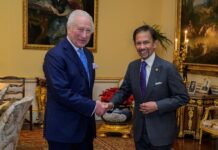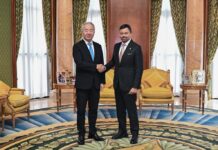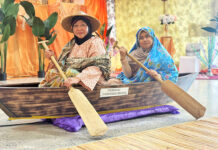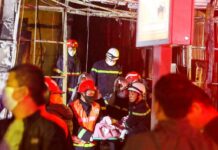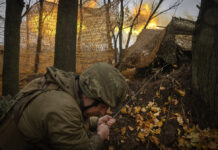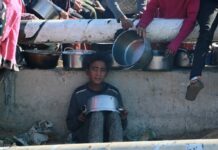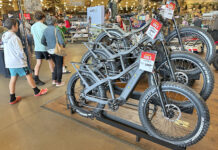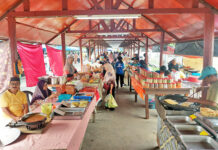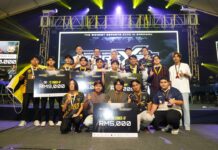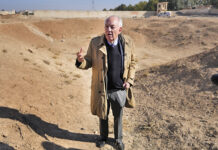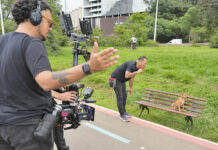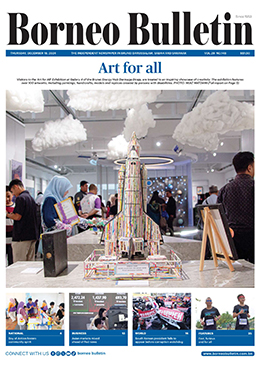ANN/THE STAR – Similar to many fathers, hotel technician Mohd Azizi Mohamed, 47, takes his son, Muhammad Aqiel Amni, 17, and daughter, Nur Athirah, 12, to school before starting his workday and picks them up afterward.
However, unlike typical routines, these trips involve assisting his teenagers into their wheelchair and stroller, placing them into his car, driving to their school, assisting them out again, and escorting them to their classrooms. This process is repeated in reverse when he collects them in the afternoon to take them home.
“Unless you are in my shoe, it’s quite impossible to imagine the time and effort needed to transport two teenagers with cerebral palsy (CP) to school everyday,” he says in an interview at his low-cost apartment in Kampung Kerinchi, where he lives with his wife, Nor Ashikin Abdul Hamid, 46, their eldest daughter, Nur Aqielah Auni, 17, (who is also Muhammad Aqiel’s twin), and her two siblings.
Before 2018, the labour was divided between him and Nor Ashikin. But that year, she had a stroke that left her right side weak. She spent a month at the Cheras Rehabilitation Hospital and although she could now walk and move, she no longer has the strength to lift her child.
Muhammad Aqiel and Nur Athirah have dystonic CP, a lifelong condition that consists of repetitive and patterned movements that are sustained, like twisting of the limbs and trunk. While Muhammad Aqiel is independent – he can bathe, get dressed and eat by himself – Nur Athirah needs help for everything.
“Aqiel moves by crawling around the house, but Athirah can only lie down or sit on her custom-built chair,” Azizi says. Nur Ashikin used to work in a firefighting agency, but decided to quit when Nur Athirah was diagnosed with CP at nine months old.
Mohd Azizi says the task of taking care of Aqiel and Nur Athirah gets harder as they grow bigger and heavier, while he and his wife are getting older and grappling with their own health problems.“But our children are our source of strength. They give us purpose and hope,” he says. “Although from the naked eye, it looks like they need us, in fact, it is us who need them more. They teach us patience, strength and resilience with their fighting spirit and zest for life,” Mohd Azizi says.
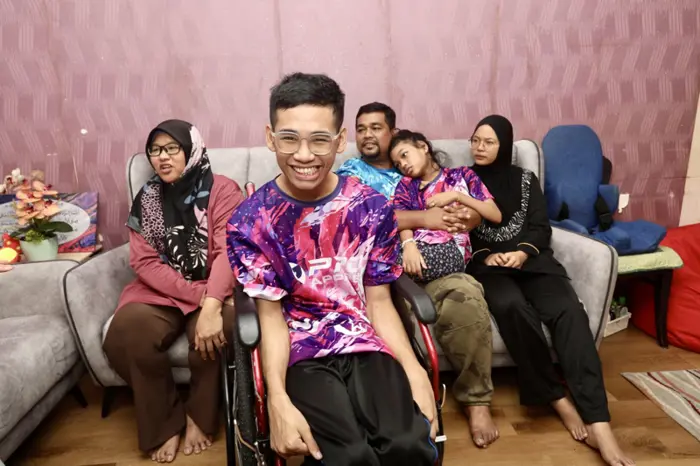
BUNDLE OF STRENGTH
Mother-of-two Intan Suryani Sohaimi, 37, also draws strength from her children – Harraz Fahmie, eight, and Hana Safiyyah, five. Hana Safiyyah was born with craniosynostosis, a disorder that causes her skull to fuse prematurely, along with other in-utero complications.
“Watching her fight for her life at the paediatric intensive care unit (PICU) and getting my son’s assurance that he understands the need for us to spend more time with his sister were much-needed boost for my spirit,” Intan Suryani says.
“I was at the verge of going into depression back then; my mind toyed with questions on how she would grow up with her condition and what I did wrong during my pregnancy,” she adds.
“The doctor also detected that she had scoliosis and cleft lip palate,” says Intan Suryani, adding that over time, the list of Hana’s health problems grew longer.
She admits that the whirlwind of emotions and challenges that followed Hana Safiyyah’s birth took their toll on her spirit and emotions, but the former software engineer says she has accepted her fate and will help Hana Safiyyah live her best life.
Nor Madinah Talib, 30, knows too well what Intan Suryani goes through. She too, found strength and courage from her first born, Muhammad Ukasyah, three, who was only a month old when doctors diagnosed him with cerebral palsy.
In addition to that, he also has gastroesophageal reflux disease (GERD), seizures, dystonia, swallowing difficulties and stiff muscles, along with respiratory problems.
“Seeing him so strong despite his conditions shows me what strength really means and why I refuse to let his diagnosis define him. Instead, I will ensure he lives his life to the fullest,” says the mother-of-two from Kuala Lumpur.
Ukasyah’s fighting spirit, she adds, solidifies her and her husband, Mohd Erdiean Syah Mohammad’s, bond in looking after their family’s well-being. The couple also has a nine-month-old daughter, Nur Erdeena.
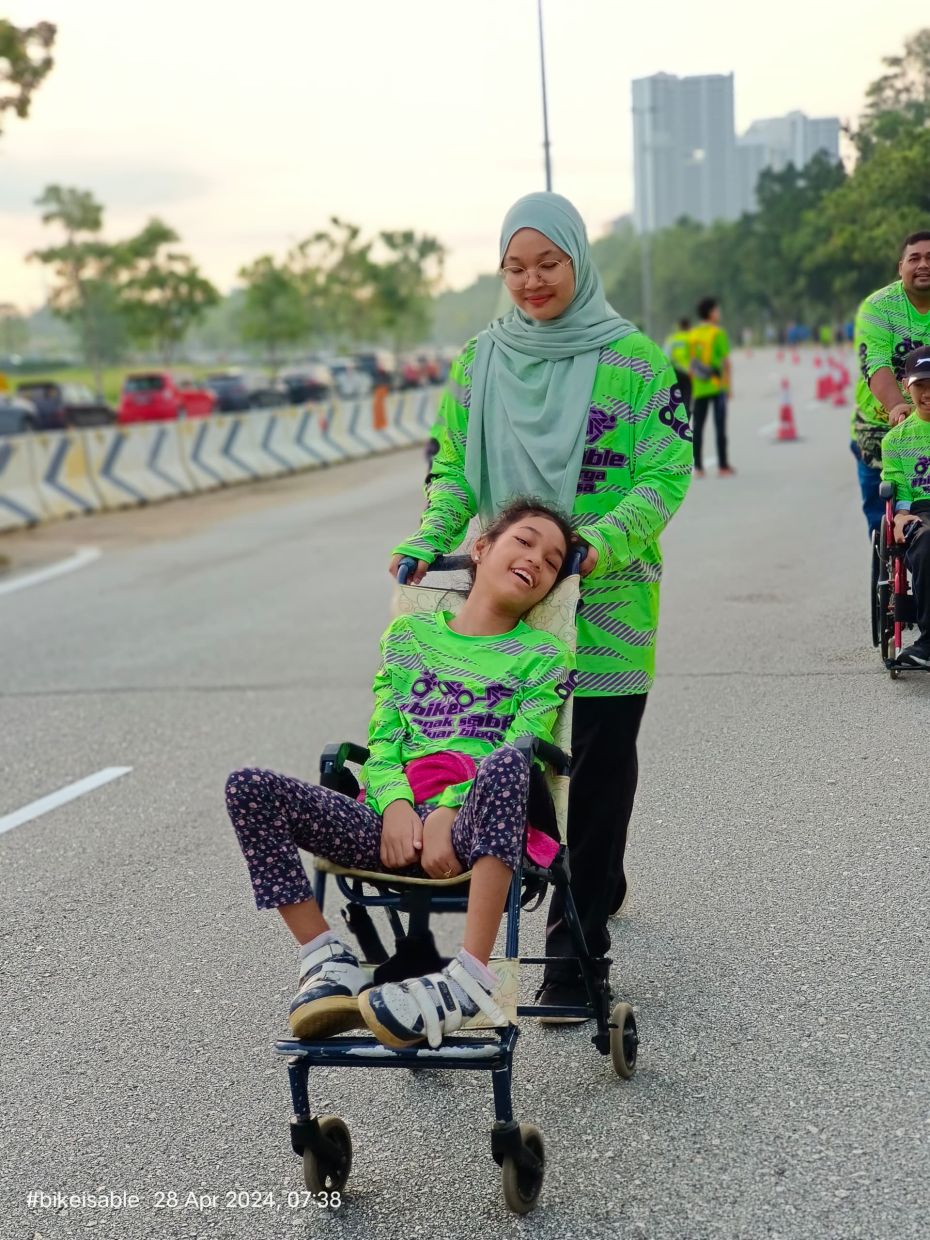
FINANCIAL CHALLENGES
Mohd Azizi says as parents to disabled children, it is their duty to give these children their time and energy. “It’s our duty as parents; and we do it out of love and gratitude for having them in our lives.”
When his wife quit her MYR2,000-a-month job, he knew he had to work doubly hard to make ends meet for the family. With the city’s high cost of living, his MYR3,000 take home salary is barely enough to support his family, let alone cover the additional expenses for his two children who require extra care, including medication, diapers, milk and wet tissues.
“Every month, we allocate MYR1,500 for their needs. But sometimes, it exceeds our budget, especially when they fall sick,” he adds.
To earn more, Mohd Azizi does electrical work during his off days or whenever the opportunity arises.
“Caring for a child with cerebral palsy – or any other disability or long-term illness – is expensive. The cost for medical equipment, therapies and other essentials can quickly add up,” says Nor Madinah.
Like Mohd Azizi, her 30-year-old husband who is in the civil service, also does part-time jobs to boost their monthly finances. While she was in confinement after delivering Ukasyah, Nor Madinah resigned from her job as a business development executive.
“He constantly cried and wanted to be held. His GERD made him threw up often which made feeding him difficult,” she says, adding that his developmental milestones are similar to those typically achieved by a two-month-old infant.
For four years, Intan Suryani juggled her time between work, home and hospital to help her husband, Mohd Zulfekri Mazlan, 42, financially.
But the countless hospital visits stretch their resources thin, and they also had to take unpaid leave from work. “That affected our performance as well,” says Intan Suryani, “and sometimes I had to bring my job to the hospital while taking care of her in the ward.”
When Hana Safiyyah’s condition deteriorated last year, Intan Suryani made the decision to resign from her 10-year job as a software engineer. “When her condition worsened, quitting (employment) was the only way to ensure the best possible care for my family,” she says.
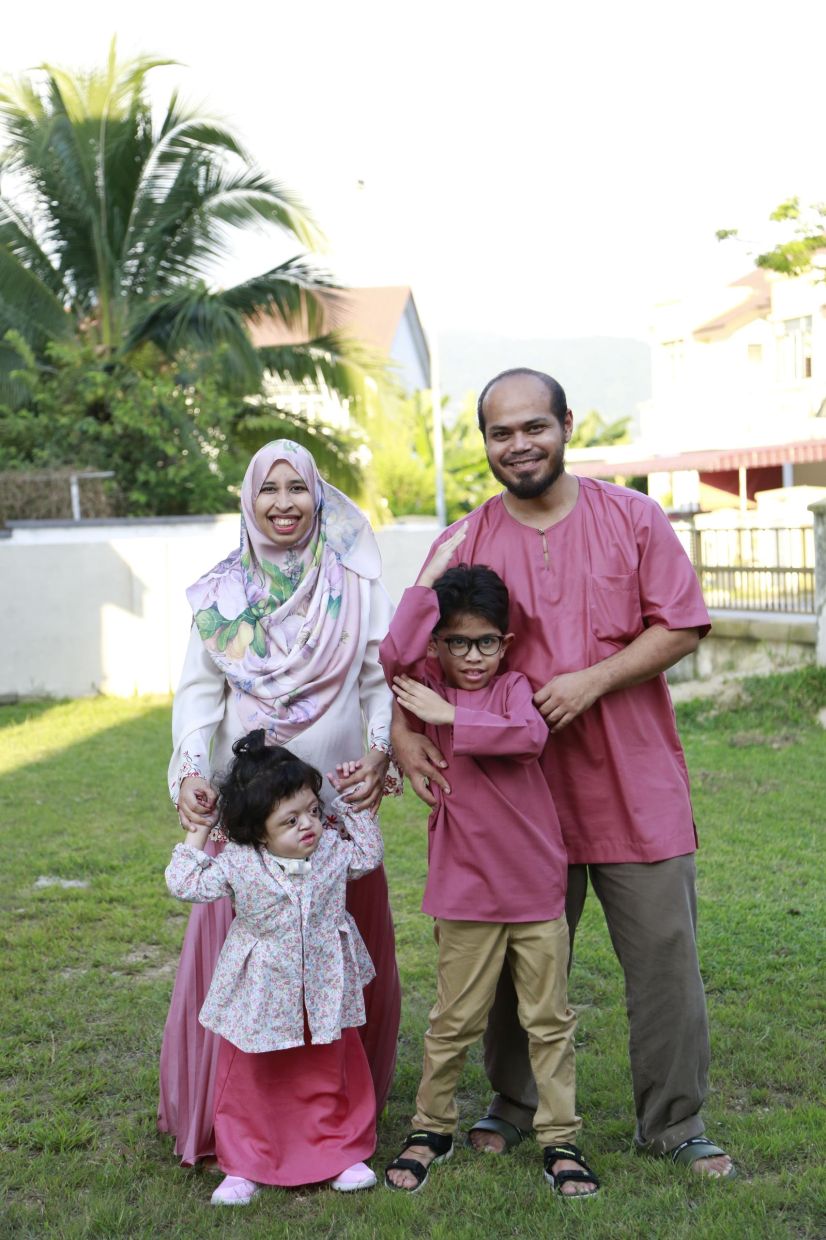
DIFFICULT MOMENTS
Last year, Hana Safiyyah had four major surgeries in one day to help her breathe without any assistance, relieve pressure and drain fluid from her ears, treat her intestinal malrotation and insert a tube through her abdomen into her stomach.
Even though her daughter has had a major surgery when she was just barely a year old, Intan Suryani says, it doesn’t get any easier. “Sending her to the operation theatre for these surgeries were the most difficult moments for me. Knowing that she didn’t know what was going to happen to her left me feeling dreadful, and going back and forth to the hospital while she was in the PICU was a very difficult time,” she says.
Ukasyah was only 11 days old when his doctor declared him dead-in-line (DIL) due to multiorgan failure.
“All we could do was surrender everything to the Almighty after we signed the DIL letter,” Nor Madinah says. Although Ukasyah remained conscious throughout the critical phase, he suffered severe brain damage as a result of the condition.
A couple of months ago, Nor Madinah and her husband faced another trial when their son was admitted to the PICU for 73 days. “He was affected by Stevens-Johnson Syndrome, a rare and serious disorder of the skin and mucous membranes, triggered by his seizure medication,” Nor Madinah says.
It was different for Mohd Azizi. Life gave him a rude shock when he was diagnosed with colon cancer just a year after his wife’s stroke. “Alhamdulillah, Allah eased everything for us. My wife is now improving and can manage herself, although she is weaker and slower, and I am now undergoing post-surgery follow-up treatment,” he says.
“Throughout those trying moments, we only had our children in mind. They were our motivation to recover and stay healthy. We are also thankful that there are people who had helped us throughout that period,” Mohd Azizi adds.
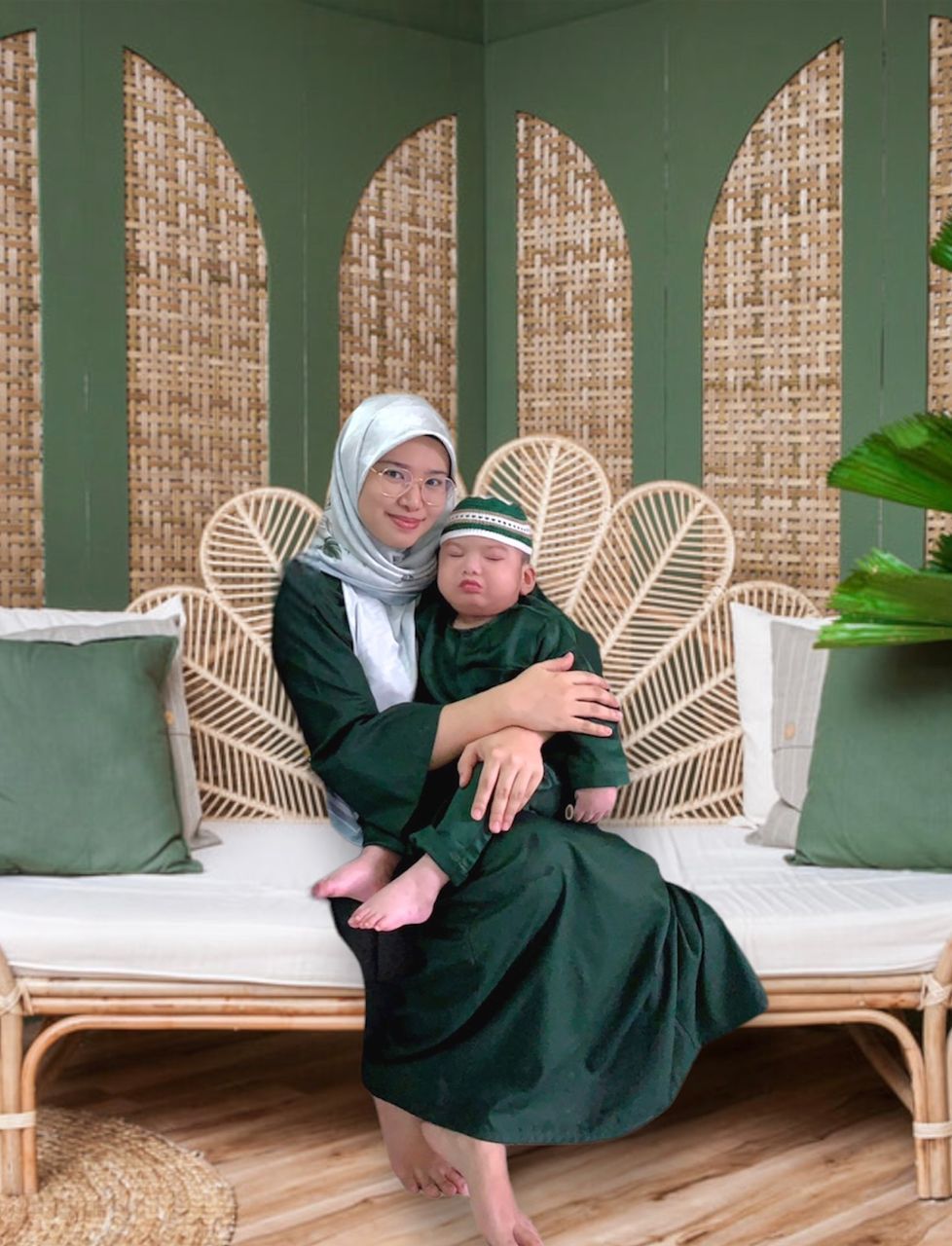
CELEBRATING THE JOURNEY
But despite their challenges, these families celebrate the journey and cherish each day. “Finding the silver living and celebrating these small wins are important to keep our spirits up,” he says.
“For parents (of disabled children) like us, every little move our children make, like feeding themselves, is a cause for celebration and gratitude,” he says.
For instance, he says, Muhammad Aqiel, who can now read and count, manages himself well and communicates effectively with others.
“His biggest achievements were being invited to participate in a fashion show and a YouTube advertisement for a car brand,” Mohd Azizi adds.
Nor Madinah agrees. “Our journey as parents to these special children has its shares of challenges and tough moments, but it also has its rewards and accomplishments.”
She says for Ukasyah, it was a significant achievement when he managed to sit with support and control his neck, given his developmental delay. “He is my hero, and I will always be so proud of him and every little move he makes,” Nor Madinah adds.
Intan Suryani felt the proudest when she watched her daughter took her first steps independently three years ago.
“She proved the doctors wrong when they said she wouldn’t be able to walk due to her syringomyelia,” she says.
Hana Safiyyah has also improved her ability to follow simple instructions and social skills.
“Those may look like small triumphs to others, but to me, the way she has improved her skills makes me incredibly proud,” says Intan Suryani.
Beyond drawing strength and courage from their special children, these parents attribute their positivity and gratitude to their faith in Allah.
“Faith and prayers help make things easier for us,” says Intan Suryani. “But it is also important to be prepared with a list of questions and concerns, to be persistent and to stay informed about the child’s treatments and conditions.”
This is a practice Ukasyah’s parents follow diligently too.
“We continuously learn to provide the best care for our son,” Nor Madinah says, adding that she has also learned to provide medical care and physical therapy for him.
“In our lives, there are always fears and concerns, but at the end of the day, we have learned to lean on our faith, believe in miracles and hold on to our hopes,” she adds.
SOCIAL NETWORK
Looking after a child with lifelong disability or life-limiting illness is no mean feat, and these parents understand this all too well.
Nor Madinah says while parents try to do their best for the child, it’s all right to ask for help and support from family, friends or other people with similar experiences.
Intan Suryani agrees. “It’s very crucial to have a strong support system for families with special needs children,” she adds. “Having a network that can provide emotional support, help, and advice is priceless,” she says.
In 2016, Wira Sudepja Rabu, who himself is a father of a child with cerebral palsy, founded Bikeisable, a community club whose current registered members include 68 disabled children and their parents.
“We focus on severely disabled children who are totally bedridden, low-functioning, and completely dependent on their parents or guardians,” Wira says. “In simple words, without guardians, they wouldn’t be able to survive.” The club aims to make life more meaningful for these children by engaging them in running and cycling activities, just like other kids but in their own special way.
“Since these children have fewer opportunities compared to their friends, we want to provide them with experiences that bring joy, engagement and enrich their lives,” he explains. As the Sports and Recreation Bureau for Malaysian Advocates For Cerebral Palsy, the club organises regular running, cycling, and endurance sport activities.
They also collaborate with other clubs and groups on various empowerment efforts. “Before this, our life was confined to moving from home to hospital with our special needs children,” Wira says. “But now, our life is extraordinary because we know that at the end of the week, we will achieve something together despite the challenges life gives us,” he concludes.
Mohd Azizi would make time to go for activities organised by Bikeisable because it is with the group that he finds support and happiness amid his daily schedule managing his disabled children.
“We are fortunate to have Bikeisable for these special needs children and their parents.” “Aqiel and Nur Athirah love the club’s outdoor activities and meeting other children. These activities are also beneficial for parents to destress from our daily tasks and challenges,” Mohd Azizi says.


